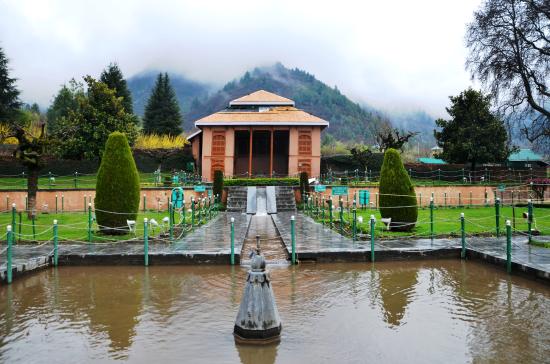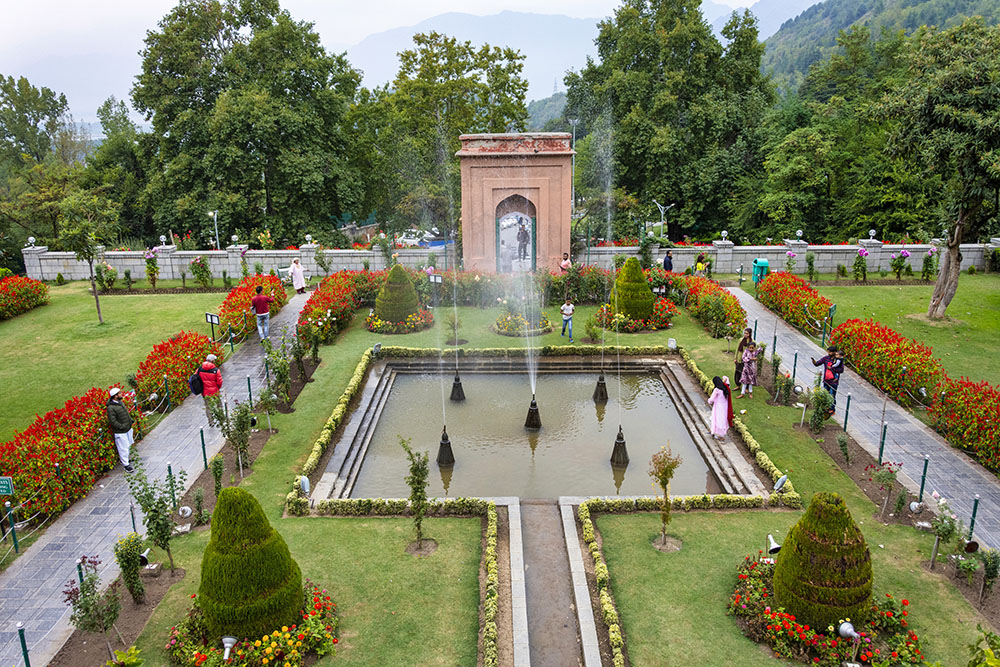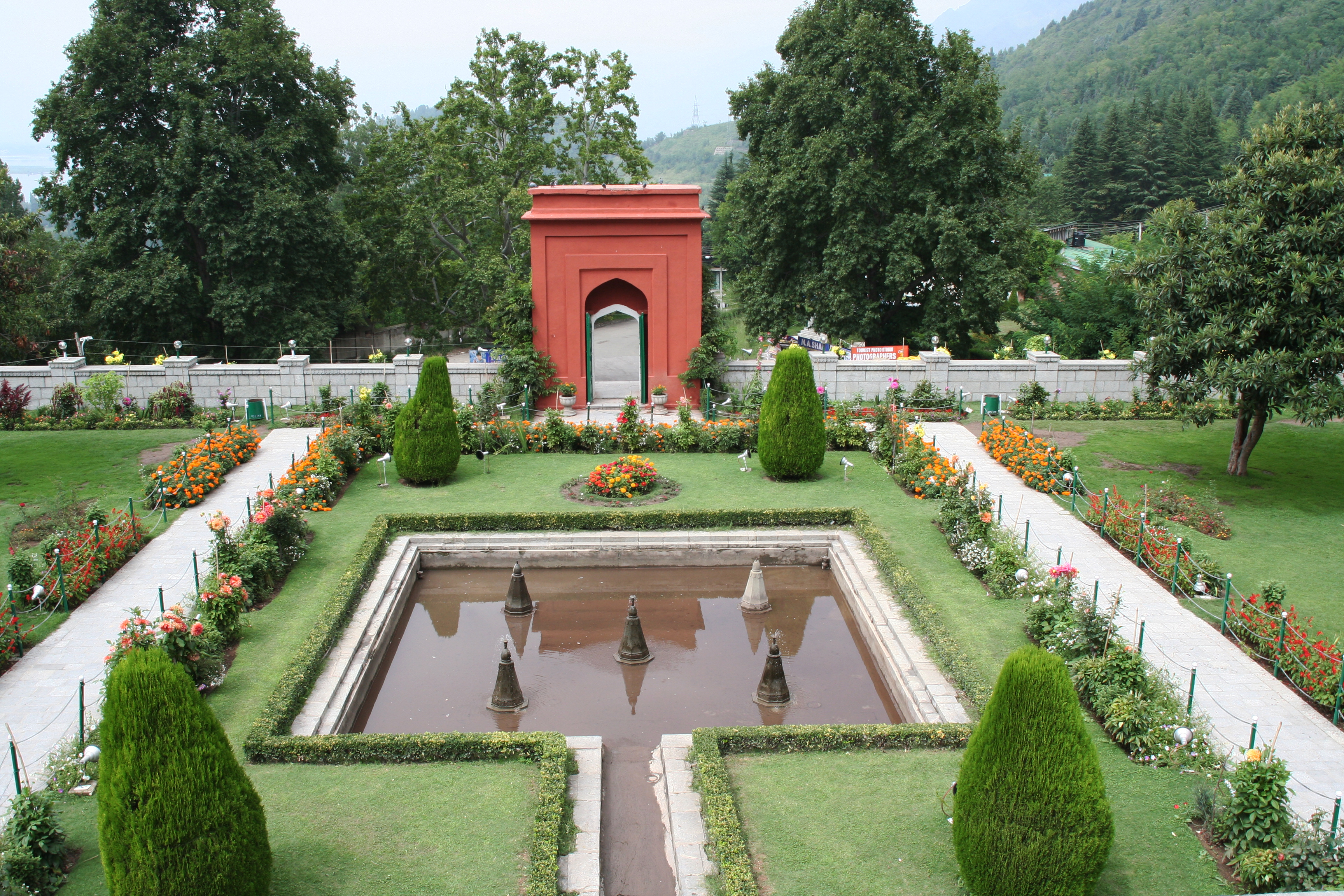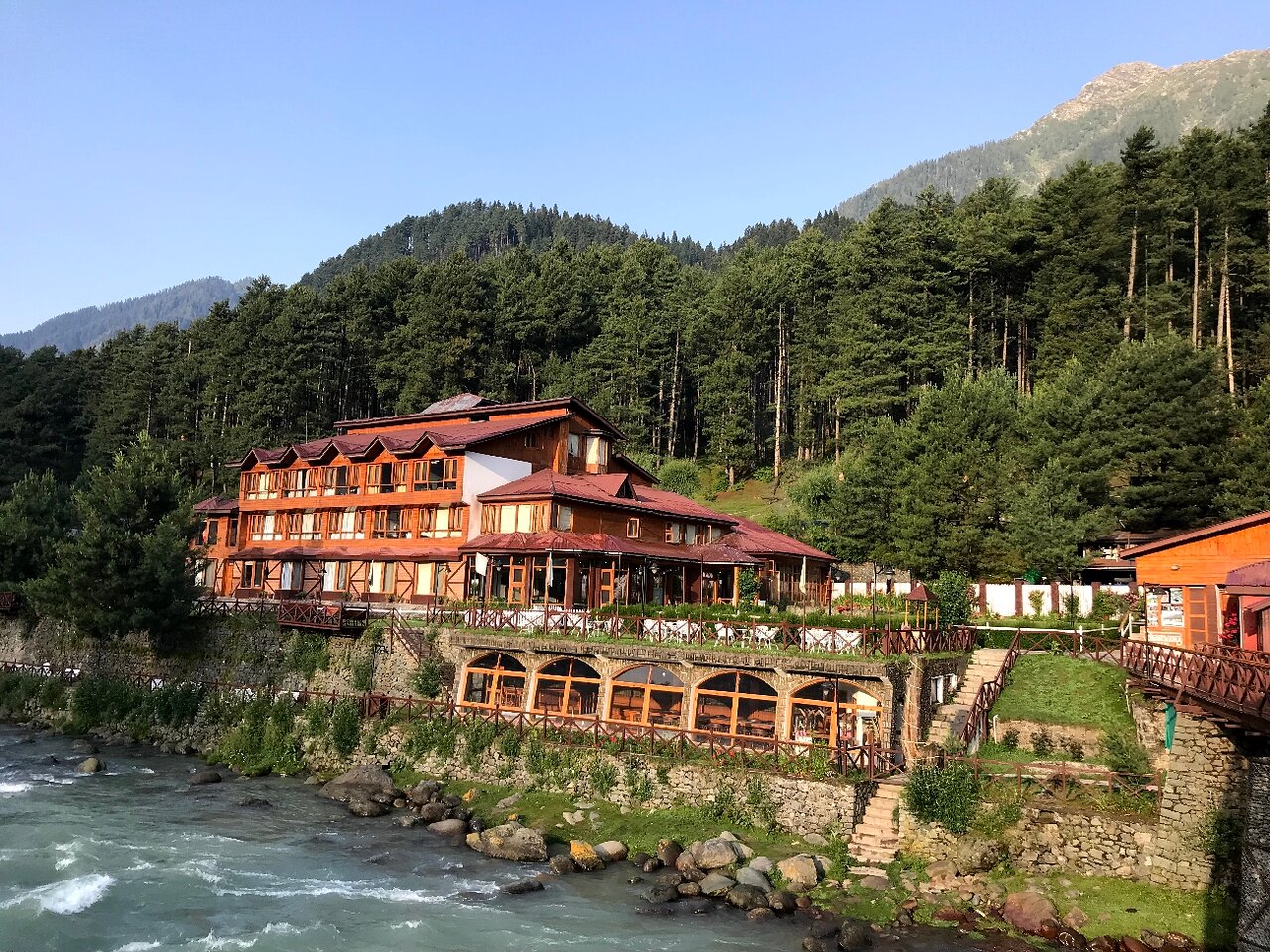


Chashm-e-Shahi and Pari Mahal
Chashm-e-Shahi
originally derives its name from the spring which was discovered by the great
female saint of Kashmir, Rupa Bhawani, who was from the Sahib clan of Kashmiri Pandits. The
family name of Rupa Bhawani was 'Sahib' and the spring was originally called
'Chashme Sahibi'. Over the years the name got corrupted and today the place is
known as Chashme Shahi (the Royal Spring)
The
garden was constructed around the spring by the Mughal Governor Ali Mardan Khan in 1632. It was commissioned by the Mughal
emperor Shah Jahan for his eldest son, Dara Sikoh. In the east of Chashma Shahi,
the Pari Mahal (Fairy Palace) lies where Dara
Sikoh used to learn astrology and where he was later killed by his
brother Aurengzeb. The garden is 108 m long
and 38 m wide and is spread over one acre of land. It is the smallest
garden among the three Mughal gardens of Srinagar; the Shalimar garden is the largest and the Nishat garden is the second largest. All the three gardens were
built at the right bank of the Dal Lake, with the Zabarwan Mountains as the backdrop.
The
garden presents Mughal architecture as used in different Mughal gardens. The
artistically built garden has Iranian influence in its art and architecture and
the design is based on the Persian gardens. It is built around a freshwater spring, discovered by Rupa
Bhawani, which flows through its centre in terraces. The topography and the
steepness of the land have led to the formation of the garden. The main focus
of the garden is the spring which flows down in terraces and is divided into
three sections: an aqueduct, waterfall, and fountains. A two-storey Kashmiri
hut stands at the first terrace which is the origin of the spring. The water
then flows down through a water ramp into the second terrace. The second
terrace serves as a water pool and a large fountain stands at its centre. The
water again flows down through a water ramp into the third terrace, which is a
square five-fountain pool. It is the lowest pool at the entrance of the garden.
The
Chashme Shahi is adjacent to Rajbhawan (Governor's house). The best time to
visit the garden is from April to October. The garden is at full bloom during
May and June
Located
just next to Chashm-e-Shahi Gardens, Pari Mahal once was a Buddhist Monastery.
Built by Dara Shikoh who was the eldest son of Mughal Emperor Shah Jahan, it
displays Islamic style of architecture.









